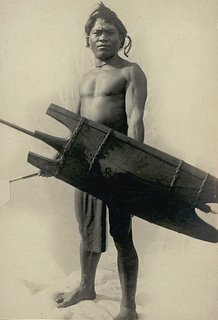RP admits ‘rampant’ traffic in human organs
The Arroyo government’s medical tourism program is the main culprit in the rise of foreigners being given kidney transplant at the expense of poor people. The selling of human organs is sanctioned by the Department of Tourism disguise as medical tourism program. What do we expect from a bogus president?
RP admits ‘rampant’ traffic in human organs
In one slum, 3,000 people admit having sold a kidney
The Department of Health on Tuesday admitted to the "rampant" illegal traffic in human organs and pledged to start drafting regulatory rules for the growing market.
Much of the trade in human organs, especially kidneys, takes place on the black market, according to Health Undersecretary Jade del Mundo.
Del Mundo cited a recent University of the Philippines study, which found that in one slum area in Manila, there were 3,000 men and women who had sold one of their kidneys for P70,000 to P120,000 ($1,440 to$2,469).
The government needs to initiate a series of consultations with private and public health sector leaders on how to regulate organ donation in the "face of rampant, under-the-table traffic in human organs," del Mundo said.
He acknowledged that organ donation is a big business in the Philippines, especially among the poor.
At present there are no specific rules on organ donation to foreigners, he added.
Commodities
A report in a Japanese newspaper recently said that if the system of organ donation were regulated, the Philippines could see a rush of foreign patients, including from Japan, where 10,000 people are awaiting kidney transplants.
Among the touchy issues scheduled for discussion during the February 10 meeting, is "payment" given by patients to donors.
Some doctors warn that poverty has forced many of the poor to treat their organs as commodities.
Hospitals have also gone around the government’s official ban on the "frank sale of kidneys" by using third parties that get commissions for every match between donor and patient. Other doctors claim that their patients only give "gifts of gratitude," which del Mundo dubbed as a euphemism for sale.
Del Mundo said the consultations would include a proposal to relax existing limits on the number of foreign patients allowed to have kidney transplants in the country.
Del Mundo said the limit is 10%, to prioritize Filipino patients, but this is often breached.
Third parties
In December the National Bureau of Investigation launched a probe on the sale of kidneys through a third party to patients of the St. Luke’s Medical Center in Quezon City.
The NBI said the probe, which stemmed from an entrapment operation on December 14, could involve several doctors and other prominent hospitals.
The entrapment led to the arrest of a middleman in the illegal sale of organs. The NBI agents discovered six male potential organ donors in a squalid Taguig bungalow.
They discovered files detailing 40-kidney donor operations dating back to 2005.
Republic Act 9208 (Anti-Trafficking of Persons Act of 2003) also penalizes the recruitment, hiring, transport or abduction of persons for the purpose of removal or sale of organs.
Special Investigator 3 Joey Narciso, case officer, said many of the files involved operations done in St. Luke’s Medical Center. The hospital pledged to cooperate with the investigation.
Ethics
Jose Rivero, 31, a tricycle driver of Lumban, Laguna, told the NBI that Permito had promised him P300,000 for his kidney.
However, he received only P66,000 which led him to report to the NBI.
Narciso said the country has no law prohibiting the direct sale of organs to a donor.
"There is nothing to prevent a donor and a recipient to come to a private arrangement," Narciso said shortly after the raid. "What is against the law is the existence of a middle man such as Permito."
Narciso also raised questions about hospital screening, which includes a review by an ethics committee.
"Such a transaction that Permito arranged between Rivero and the recipient, if it was revealed or suspected during the screening process, should have led to the operation being disallowed." AFP and Katrice Jalbuena
Labels: Exploitation, Human vital organs, Medical tourism





 Deviant Art
Deviant Art
3 Comments:
A married couple named GARRY JUSAY, a native of San Juan, Batangas and Sheryl Jusay, a native of Nueva Ecija residing at B17 L19, Kingstown2 Subd., Bgy 171, Caloocan City identified as head of Kidney Syndicate operating North, Central and South Luzon including Metro Manila started 2005 up to this present. On Sept. 29, 2007, law enforcers raided their safe house at Bgy Ticalan, San Juan, Batangas and rescued several candidate for kidney donors but the couples eluded the arrest for unknown reason. Sheryl Jusay is a former Quezon City Gen Hosp Aid and Gary Jusay a former plastic factory worker. This time they have establish several huge businesses like hotel as their front, one of this hotel is in Nueva Ecija. Although they bought several expensive houses, they choose to stay on the above address because they feel secured due to the fact that they brought several of their kababayan and relative to occupy several houses in the said street to secure them.
zzzzz2018.6.27
coach outlet
oakley sunglasses
adidas outlet
air jordan 4
nike air max 95 ultra
salomon
ed hardy clothing
tn pas cher
coach factory outlet
coach outlet
hermes outlet
air jordan 1
kd shoes
bape outlet
Post a Comment
<< Home